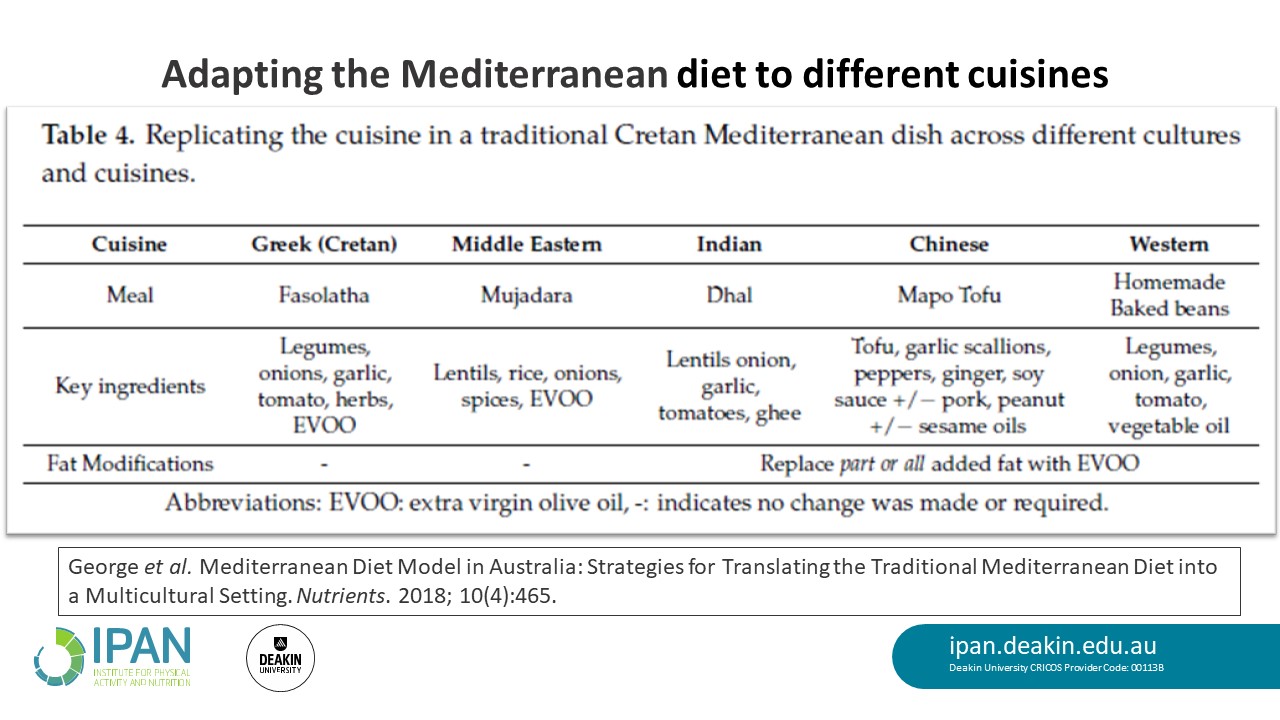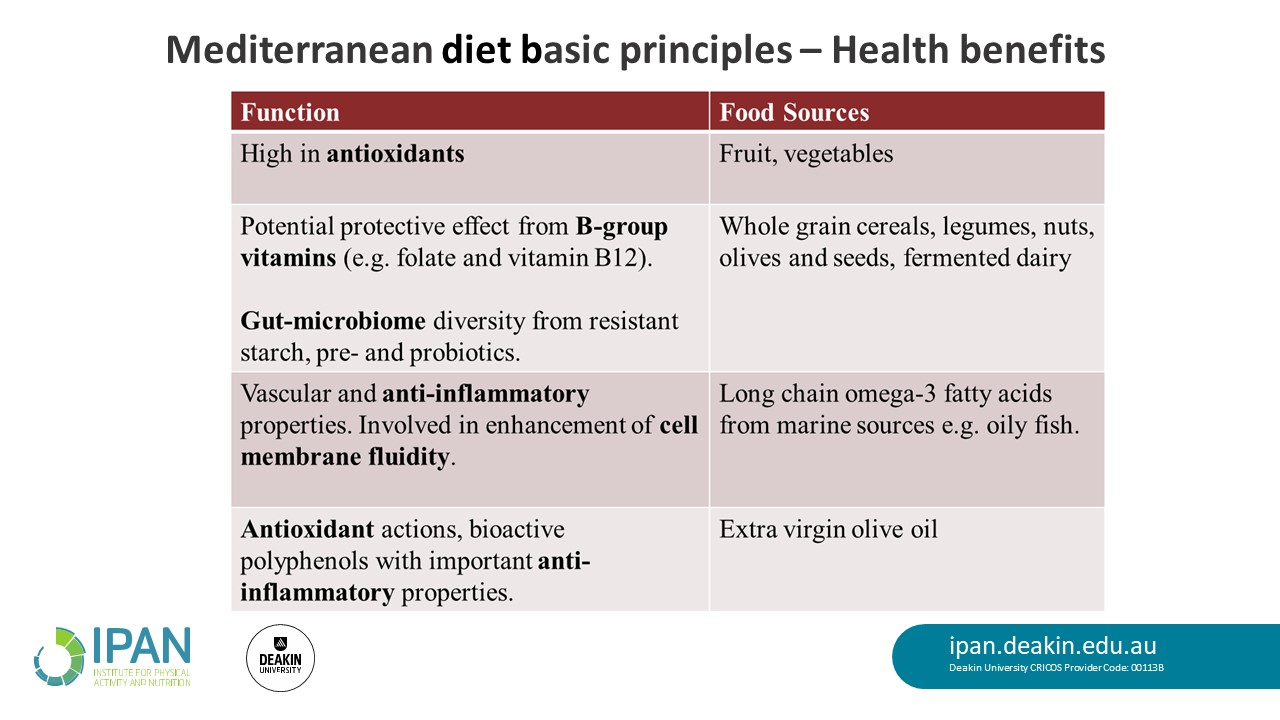Applying the Mediterranean Diet to a Multicultural Population by Dr Elena George, AdvAPD
 Anthea Talliopoulos, APD
Anthea Talliopoulos, APD
Over recent years, there has been an increased emphasis on the Mediterranean Diets rich in monounsaturated and polyunsaturated fats, which significantly shifts away from the previously commonly promoted low-fat diets. The benefits of the Mediterranean Diet can be observed since the 7-Countries Study, in which coronary heart disease mortality was positively associated with saturated fat intake, and inversely associated with monounsaturated fat intake. While these findings could have had the potential to greatly alter public health nutrition advice, the findings were unfortunately misrepresented, and the overall ‘low fat diet’ was largely promoted, rather than a diet rich in unsaturated fats.
Since the 7-Countries Study, the benefits of the Mediterranean Diet are being continuously backed-up by research, with a greater emphasis on unsaturated dietary fats and whole food components, which is much more consistent with the traditional Cretan Diet. The benefits of the Mediterranean Diet can be observed through reducing oxidative stress, which is a common underlying factor in many conditions.
Whilst there is rigorous research on the benefits of the Mediterranean Diet, translating this research into practice can pose to be a challenge. In this fascinating and in-depth presentation, Advanced Accredited Practising Dietitian Elena George shares her knowledge and expertise on the research and implications of the Mediterranean Diet. She provides practical insights and guides into applying the principles of the Mediterranean Diet including the alteration of traditional multicultural recipes to this diet, with a focus on high vegetable intake, complex carbohydrates, significantly reduced meat intake, increased legume intake, 30g of nuts daily, at least 3 servings of fish (with at least 1-2 serves of oily fish) per week, and 3-4 tablespoons of extra virgin olive oil daily.
As a whole, the dietary principles of a Mediterranean can have significant positive implications on clinical outcomes and can be practically translated to Western and multicultural societies.
Summary:
- The ‘low fat’ diet has been largely promoted, misrepresenting the Mediterranean Diet, and resulting in individuals continuing to avoid using extra virgin olive oil in adequate amounts in their cooking.
- The Mediterranean Diet has been positively associated in reducing the oxidative stress of many commonly seen conditions including IBD, heart disease, diabetes and neurological conditions such as dementia and Parkinson’s Disease.
- While clinical research clearly points to the benefits of a Mediterranean Diet, translating this research into practice can be a challenge. Focusing on gradually adjusting clients to a Mediterranean diet in increasing their intake of extra virgin olive oil, legumes and fish, while decreasing their meat intake and providing flavoursome recipes can have a significant impact on long-term dietary adherence.
Dr Elena George is a Senior Research Fellow, Advanced APD and ECR. She is interested in translational research, in particular enhancing evidence-based practice in dietetics through research. Her interests are in development and delivery of dietary interventions, especially Mediterranean diet, for the prevention and management of chronic diseases including non-alcoholic fatty liver disease, type 2 diabetes, metabolic syndrome and cardiovascular disease. Elena has experience as a clinician running her own successful private practice for over 10 years and as a research dietitian in tertiary hospitals. Elena is passionate about building the future of nutrition and dietetics through mentoring and student supervision, through the APD program, informal mentoring and honours, Masters and PhD supervision.
To register for the presentation and associated documents including the assessment quiz click here
This presentation is useful for dietitians working in clinical practice seeking further clarification on the Mediterranean Diet and its practical translation to enhance client outcomes, particularly with chronic diseases.

